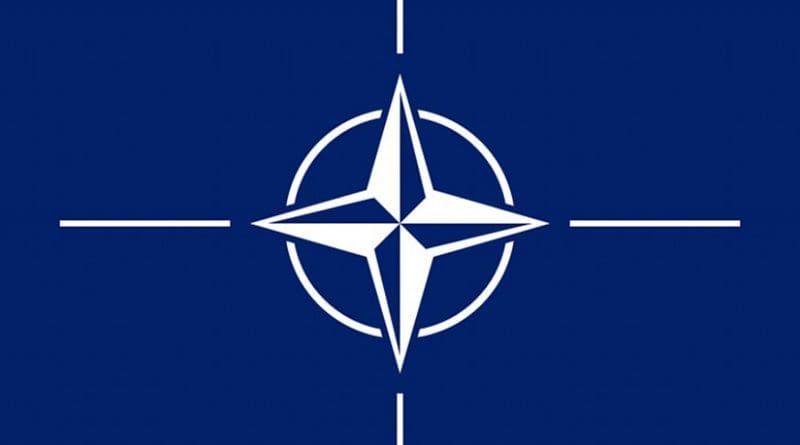NATO Boosts Eastern flank To Reassure Nervous Allies – Analysis
By Ana Maria Luca
The Western alliance has taken a significant step towards upping defensive capacities along its entire eastern flank amid growing concerns about Russia.
NATO member state officials meeting in Brussels agreed to boost the alliance’s military presence along its entire eastern flank from Bulgaria to the Baltics.
Romania and Bulgaria will both host an increased air force presence, designed to undertake surveillance missions over the Black Sea.
It is the biggest NATO deployment since the Cold War and comes as Russia pushes on with its biggest naval deployment since the Cold War, with the Admiral Kuznetsov, Russia’s only aircraft carrier, leading a convoy of eight ships towards the Eastern Mediterranean along the European coast.
This month, Russia also deployed nuclear-capable missiles in Kaliningrad on the Baltic, increasing nervousness in Poland and in the Baltic states. Last month, Russia suspended a weapons-grade plutonium agreement with the United States.
Tensions between the West and Russia have mounted since Russia annexed Ukraine’s Crimea region in 2014, as a result of which Western countries imposed sanctions on Moscow.
The breakdown of a ceasefire agreement in Syria, where Russia is supporting Bashar Al-Assad’s government and its offensive against rebel-held eastern Aleppo, has prompted the EU to consider fresh sanctions last week.
“I’m happy,” NATO’s Secretary General Jens Stoltenberg said Wednesday after the talks in Brussels. He said several states had offered to contribute to an increased allied presence in the Black Sea region, including Canada, Germany, The Netherlands, Poland, Turkey and the US.
Romania hails increased commitment to region
“Countries for the first time have expressed a willingness to financially participate to supporting security arrangements on the northeast flank [of NATO] as well as our Black Sea region,” Romanian Defence Minister Mihnea Motoc noted after the meetings.
Besides Romanian and Bulgarian airbases hosting NATO troops and aircraft, Romania is to also host a regional air force training centre. Starting next year, Romania also hopes to head a multinational force at the Black Sea.
In the meantime, 13 NATO member states, including Albania and Croatia, are going to contribute troops to four battalions – totaling roughly 4,000 troops – led by Canada, Germany, the UK and the US in the Baltic States and Poland.
Albania, Italy, Poland, Slovenia will contribute to the Canadian-led battalion in Latvia, Belgium, Croatia, France, Luxembourg, The Netherlands and Norway will join the German-led battalion in Lithuania, while Denmark and France will contribute to the UK-led battalion in Estonia, Stoltenberg explained.
Romania and Britain will join a US-led battalion in Poland. The move was agreed on at last summer’s NATO summit in Warsaw.
Britain also announced on Wednesday that it would send Typhoon fighter jets to Romania next year and the US promised troops, tanks and artillery to Poland. Romania already hosts a US missile defence system at Deveselu, in southern Romania.
Canada and Poland will also send aircraft to Romania. The aircraft would be hosted in the southeastern Mihail Kogalniceanu military airport and will police NATO’s southeast flank.
Black Sea build-up postponed
Romania, Bulgaria and Turkey are also expected to come forward with a plan to increase naval and air patrols in the area by the beginning of 2017.
“The political decision is to task the allied forces to come up by the end of January with proposals on two basic elements for the maritime component – a strengthened training framework and a coordination body for the Black Sea that reports to the specialized NATO command,” Romania’s Motoc said after the Brussels meeting. Talks will be held on this in February 2017.
In the meantime, the US is seeking tighter exchanges of information with Bucharest.
At a meeting in Washington, where both states discussed their strategic partnership, the US agreed to support Romania in tightening security in the Black Sea, and its initiative to establish a multinational naval brigade in the Black Sea.
Deputy US Assistant Secretary for Russian affairs Kathleen Kavalec was in Bucharest on Wednesday to talk about developments. On Wednesday, she said Romania, and other countries on the Eastern flank, had a degree of experience in relations with Moscow that some Western states missed.
Bulgaria says decision is up to NATO
Bulgarian defence minister Nikolai Nenchev on Wednesday said Sofia and Bucharest would work together and define their takes on the increased NATO deployment in the Black Sea by December.
“I was against negotiating with Romania and Turkey on this aspect. Such a decision, if it is taken, should be made by NATO; it shouldn’t come from different countries in the Alliance. That is fair,” he said in Brussels. “We’ll meet in December to clarify the matter,” the minister added.
While the naval brigade is still on the agenda, Bulgaria has agreed to participate with 400 troops in the multinational brigade in Romania. The minister said Sofia had not been asked to send troops to the Baltics.


These deployments are not ensuring security, they are upsetting it and creating threats and provocations that can only lead to more escalation. Who benefits? The military contractors and banks that fund them, the proponents of the TTIP, CETA and TISA, (banks and multinationals) who use the fear of Russian aggression to justify trade treaties that would allow them to suck the financial blood out of Europe (and Canada and America). Unless cooler heads prevail, existential risks will continue to loom, with the potential of mistakes being made that could trigger a third world war.